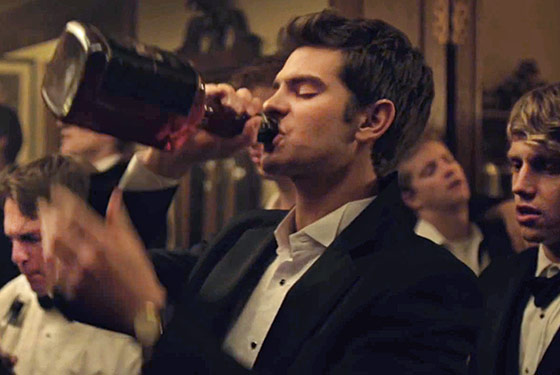
One prevailing theme of this blog is that, in regard to choices about substance use, what goes on in the mind (in the way of thoughts and beliefs) is profoundly more significant than any supposed gene or other biological factor associated with “addiction”. This factor is evidenced again and again in so many ways. One noteworthy example was mentioned in a current Newseek story by Nick Summers about the impact of the movie “The Social Network” on the actual clubs it portrays.
The movie is set at Harvard, and portrays the lifestyle of members in the schools 8 all male “final clubs” – institutions with some similarities to fraternities. According to the piece, the movie exaggerated some aspects of life in the final clubs:
What The Social Network gets wrong, students say, is the degree of depravity at parties thrown by Harvard’s eight exclusive final clubs
The part that makes this interesting, comes in this next quote:
Last semester, with The Social Network and its sexed-up Harvard in theaters, alcohol-poisoning incidents originating at final clubs nearly doubled, according to a college tutor who has seen the privately held statistics.
So as soon as this massively popular movie comes out and portrays the clubs as having wild out-of-control parties, the actual parties in the actual clubs get wilder and more out-of-control. This is just one more example of the fact that people generally behave how they think they should behave. In this case the newest crop of members learned that being in these clubs is about being wild partiers – so they did that, and the result was twice as many alcohol poisoning incidents as usual.
Where this principle becomes really important, is when we tell people things like “relapse is a part of recovery”, that they can never know whether they’ll drink/drug again tomorrow, that their behavior is due to an incurable disease which they’ll have for the rest of their lives, that one drink will lead to a full relapse, and any other sort of self-defeating nonsense of which I could go on and on listing examples from the recovery culture.
If a dramatic work like this movie can have so much influence over behavior, imagine how much the various newsmagazine programs, documentaries, and other shows like Intervention, who present a view of “addicts” as powerless, can negatively effect the behavior of people who have substance use problems. They’re teaching people that they’re incapable of change, and I find that dangerously irresponsible. But even worse than that are the medical professionals who teach people this garbage.
I’d be willing to bet that back in the 80’s and early 90’s when countless movies (such as New Jack City) portrayed crack cocaine as “instantly addictive” that rates of crack addiction (as compared to rates of use) were probably much higher than they are now. Similarly, I’m sure the current trend of portraying prescription drugs as addictive will convince more people to use them addictively.
